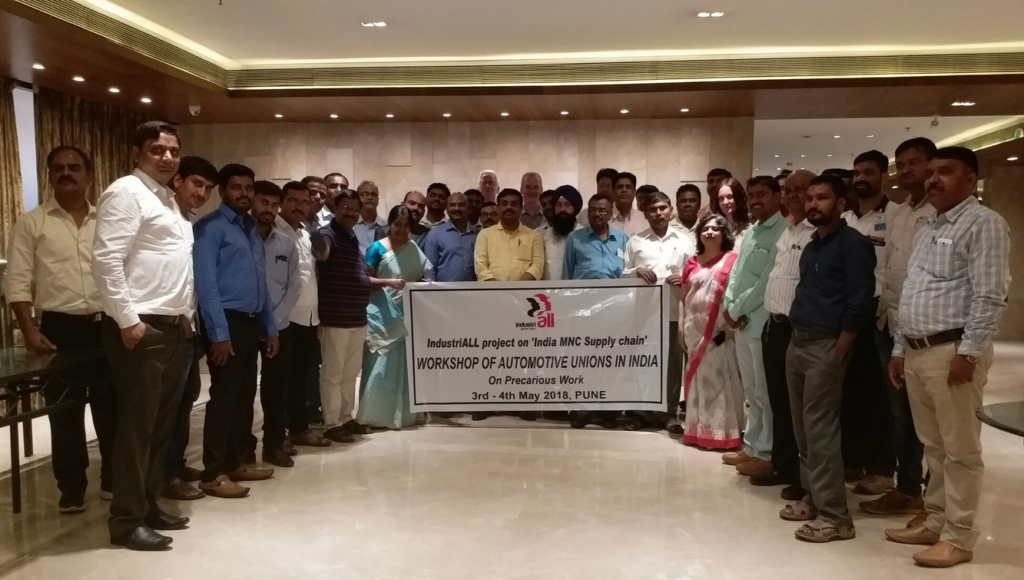9 May, 2018Precarious work is deeply rooted in India’s automotive industry. Almost every major auto company in the country employs large numbers of precarious workers with low wages, poor working conditions and workers lack job security.
Union representatives of automotive and tyre companies from Chennai, Bengaluru, Pune, NCR Madhya Pradesh, Odisha and Jharkhand came together in a workshop in Pune on 3-4 May to discuss the challenges.
Apoorva Kaiwar, IndustriALL South Asia Regional Secretary said that the enormous amount of precarious work in India’s automotive industry has deep implications for sustainable development.
There is a profound wage gap and difference in working conditions between permanent and precarious workers in Indian automotive industry.
Representatives from IndustriALL German affiliate IG Metall, participated and explained the extent of precarious work in the German auto industry, and the strategies adopted to reduce the use of precarious workers to acceptable levels.
Georg Leutert, IndustriALL automotive director said on the global perspective on precarious work in the industry:
Automotive companies use precarious workers to gain flexibility, cost reduction and to bypass employment protection laws. Precarious workers mostly perform similar tasks as that of permanent workers, but are denied equal wages, working conditions and union rights.
Unions must fight precarious work and organize all workers to achieve sustainable development, strengthen union bargaining power and build unity among workers. All attempts to fight precarious work in the automotive sector in India sends a powerful message that cannot be ignored.
Participants decided to build solidarity to defend the rights of precarious workers. They agreed to discuss precarious work in union committee meetings and document good practices of tackling it to increase awareness and find ways to fight back.
It was agreed to take steps to bridge the gap between permanent and precarious workers through social, cultural and sports activities. Possibilities of forming branch union for contract workers in respective companies will be explored.
Union representatives agreed to intensify solidarity efforts to defend precarious workers’ rights and take steps to convert agency/contract workers into company employees, with the long-term objective of making them permanent employees.
Further, it was also agreed to enhance active participation of women and youth in union all activities.
